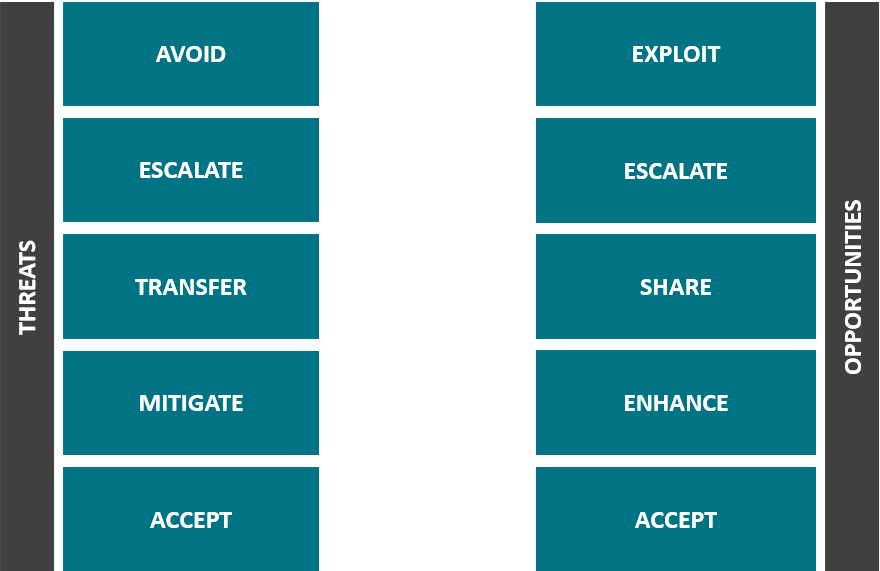Seizing Opportunities for Project Success

Organisations gain competitive advantage by seizing opportunities. We can do that when we run projects too. We need to be open to wins and adopt a benefits and opportunities mindset.
Focusing on mitigating risks is not enough. Consider what positive risks could occur. How could you present and leverage them?
- Is there another business area working on a complementary piece of work that could realise an opportunity if aligned?
- Are there outside events that allow us to update stakeholders on progress?
- Are we looking out for innovative ways to communicate the change throughout the project?
- How could something be done differently to better align with strategic goals?
- As we make progress, could we leverage the gains we are making?
Risk Response
PMBOK 7th edition defines ‘Planning Risk Responses’ as the process of developing options, selecting strategies, and agreeing on actions to address overall project risk exposure, as well as to treat individual project risks.
Risk responses to threats:
- Escalate: when the project team agrees the threat is beyond the project scope
- Avoid: eliminate or protect the project from high-priority risks
- Transfer: shift the impact to a third party
- Mitigate: reduce the probability and/or impact of the risk
- Accept: take no action unless the risk occurs
Opportunity Response
Strategies to seize opportunities:
- Exploit: ensure the opportunity is realised or guaranteed
- Share: allocate ownership of the opportunity to a third party
- Enhance: increase the probability and/or impact of the opportunity
- Accept: take advantage of the opportunity if it arises but don’t actively pursue it
Identify, assess, and prioritise opportunities. Create response strategies and assign responsibilities. Treat them like risks but adopt an exploitation strategy rather than a mitigation strategy.
Don’t get carried away
One of the biggest reasons projects fail is because they don’t manage scope well and the project becomes too big and unwieldy to succeed. Being alert to opportunities doesn’t mean you should grow the scope of your project. Often it means joining forces with others to do something in a better way for a better result. Some opportunities may make sense – just not in your project. You can pass an idea on to operations, to another project, or include it in your project closure as a recommendation. You don’t have to do everything.
Rich Downey, Consultant, Hague Consulting Ltd. © Hague Consulting Ltd 2024.
Share this on social media
